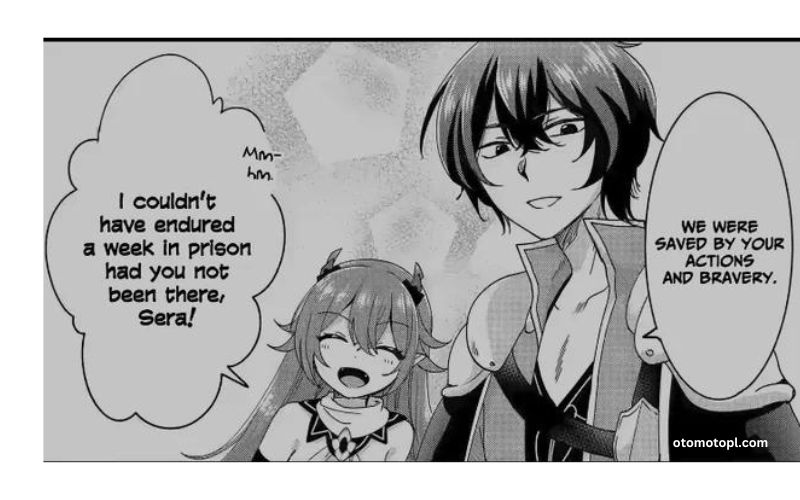The title “Steal the Child of the Terminally Ill” evokes a range of powerful emotions and raises profound ethical questions. On the surface, the very idea of stealing a child from a terminally ill family seems abhorrent and deeply unethical. It conjures up images of heartbreak, violation, and the exploitation of the most vulnerable members of society.
However, as we delve deeper into the complexities of this sensitive topic, we must be willing to confront the underlying motivations and circumstances that could potentially lead someone to consider such an act. Terminal illness is a devastating experience that can profoundly impact not just the patient, but the entire family. The emotional toll, financial strain, and logistical challenges can be overwhelming, and in some cases, individuals may feel driven to take desperate measures in a misguided attempt to alleviate the suffering of the child.
It is crucial that we approach this issue with empathy, understanding, and a commitment to finding constructive solutions that respect the dignity and rights of all involved. By exploring the nuances of this complex topic, we can gain a deeper appreciation for the challenges faced by terminally ill children and their families, and work towards creating a more compassionate and supportive system to address their needs.
Exploring the Motivations Behind the Title
As we delve deeper into the complexities of the title “Steal the Child of the Terminally Ill,” it’s important to consider the potential motivations that could drive someone to contemplate such an act. While the idea of stealing a child from a terminally ill family is undoubtedly unethical and illegal, it’s vital that we understand the underlying factors that may contribute to this line of thinking.
One potential motivation could be a misguided belief that the child would be better off in a different environment, away from the emotional and physical toll of the terminal illness. This could stem from a desire to “rescue” the child from a perceived negative situation, with the misguided belief that a different home or caregiver could provide a better quality of life. However, this perspective fails to recognize the deep emotional bonds and the irreplaceable value of a child’s connection to their family, even in the face of terminal illness.
Another potential motivation could be a sense of desperation and hopelessness in the face of a terminally ill child. The emotional and financial strain of caring for a terminally ill child can be overwhelming, and in some cases, individuals may feel that they are unable to provide the level of care and support that the child needs. This could lead to a misguided belief that removing the child from the situation is the only way to ensure their well-being, despite the severe ethical and legal implications.
It’s crucial to understand that these potential motivations, while understandable on a human level, do not justify the unethical and illegal act of stealing a child. Instead, we must explore alternative solutions that prioritize the well-being and rights of the terminally ill child and their family, while providing the necessary support and resources to ensure their needs are met.
The Legal and Moral Consequences of Stealing a Child
The act of stealing a child, even in the context of a terminally ill situation, is a serious crime with severe legal and moral consequences. Legally, the act of kidnapping or abducting a child is punishable by lengthy prison sentences, hefty fines, and a permanent criminal record. The trauma and disruption caused to the child and their family can have lasting psychological and emotional impacts, and the legal system is designed to protect the rights and well-being of children.
Morally, the act of stealing a child violates the fundamental principles of human dignity, autonomy, and the sanctity of the family unit. It represents a blatant disregard for the rights and emotional well-being of the terminally ill child and their family, who are already facing unimaginable challenges. The betrayal of trust and the violation of the family’s privacy and security can have devastating effects, compounding the already immense emotional burden they are carrying.
Moreover, the act of stealing a child can have far-reaching consequences beyond the immediate family. It erodes the trust and social fabric of the community, undermining the belief that children are safe and protected. It can also have broader societal implications, as it sets a dangerous precedent and undermines the rule of law, which is essential for a just and stable society.
It is crucial to understand that the legal and moral consequences of stealing a child are severe and long-lasting. Instead of considering such an unethical and illegal act, it is essential to explore alternative ways to support and assist terminally ill children and their families, while respecting their rights and dignity.
The Impact on the Terminally Ill Child and Their Family
The impact of stealing a child from a terminally ill family would be devastating, both for the child and their loved ones. Imagine the profound sense of violation, fear, and betrayal that the child would experience, being ripped away from the only family and home they’ve ever known, during a time of immense vulnerability and fragility.
The emotional trauma of such an event would be immense, compounding the already overwhelming challenges faced by the terminally ill child. The child may experience intense feelings of abandonment, insecurity, and a deep sense of loss, which could further exacerbate their physical and emotional well-being. The disruption to their routine, support systems, and sense of safety could have devastating consequences, both in the short and long term.
The impact on the terminally ill child’s family would be equally devastating. The grief, anger, and sense of powerlessness they would feel would be overwhelming. The trust they had placed in their community and the systems designed to protect their child would be shattered, leaving them feeling isolated, vulnerable, and unable to focus on the critical task of providing the best possible care for their terminally ill child.
Moreover, the legal and financial implications of such an event would only compound the already significant burdens faced by the family. The time and resources required to navigate the legal system, search for their missing child, and potentially seek compensation for the trauma would further drain their emotional and financial resources, leaving them even more vulnerable and unable to prioritize the care and comfort of their terminally ill child.
It is essential to recognize the profound and lasting impact that stealing a child from a terminally ill family would have. Instead, we must explore alternative ways to support and assist these families, ensuring that the child’s well-being and the family’s dignity are always at the forefront.
Alternative Ways to Support and Help Terminally Ill Children and Their Families
Rather than considering the unethical and illegal act of stealing a child from a terminally ill family, it is crucial to explore alternative ways to provide support and assistance to these vulnerable individuals. By focusing on compassionate and constructive solutions, we can make a meaningful difference in the lives of terminally ill children and their families.
- Palliative and Hospice Care: Ensuring that terminally ill children and their families have access to high-quality palliative and hospice care can make a significant difference in their quality of life. These specialized services provide comprehensive support, including pain management, emotional and spiritual counseling, and practical assistance with daily living tasks.
- Financial Assistance: Terminally ill children and their families often face significant financial burdens, from medical expenses to lost income. Providing access to financial assistance programs, such as grant funding, insurance coverage, and community-based support, can alleviate some of the stress and allow families to focus on their child’s care.
- Respite Care: Caring for a terminally ill child can be physically and emotionally exhausting for families. Offering respite care services, such as temporary in-home assistance or short-term residential placements, can provide much-needed relief and allow caregivers to recharge and rejuvenate.
- Emotional and Psychological Support: Navigating the challenges of a terminal illness can be incredibly taxing on a child’s and family’s mental health. Connecting them with counseling services, support groups, and grief counseling can help them process their emotions and build resilience.
- Community Engagement: Fostering a supportive community around terminally ill children and their families can make a significant difference. This could involve organizing volunteers to assist with household tasks, coordinating meal deliveries, or creating opportunities for the family to connect with others who understand their unique experiences.
- Advocacy and Awareness: Advocating for better policies, resources, and support systems for terminally ill children and their families can help create a more compassionate and equitable society. Raising awareness about the challenges they face can also inspire others to get involved and make a difference.
By exploring these alternative ways to support and assist terminally ill children and their families, we can demonstrate our commitment to their well-being and dignity, and work towards creating a more just and compassionate world.
Raising Awareness and Advocating for Better Support Systems
In addition to exploring alternative ways to support terminally ill children and their families, it is crucial to raise awareness and advocate for the development of better support systems. By shining a light on the challenges faced by these vulnerable individuals, we can inspire meaningful change and ensure that their needs are met with empathy and compassion.
One key aspect of this effort is educating the public about the realities of terminal illness in children. Many people may not fully understand the emotional, physical, and financial toll that these families endure, or the unique challenges they face in navigating the healthcare system and accessing the resources they need. By sharing stories, statistics, and expert insights, we can help build a greater understanding and foster a more supportive community.
Advocacy efforts are also essential in driving systemic change. This may involve lobbying for improved policies, increased funding for palliative and hospice care, and the development of comprehensive support services for terminally ill children and their families. By engaging with policymakers, healthcare providers, and community leaders, we can work to ensure that the needs of these families are prioritized and that they have access to the resources and support they deserve.
Additionally, it is crucial to amplify the voices of terminally ill children and their families, empowering them to share their experiences and advocate for themselves. By providing platforms for their stories to be heard, we can challenge misconceptions, inspire empathy, and create a more inclusive and supportive environment for those facing terminal illness.
Ultimately, raising awareness and advocating for better support systems is a crucial step in addressing the challenges faced by terminally ill children and their families. By working together to create a more compassionate and equitable society, we can ensure that these vulnerable individuals receive the care, resources, and support they need during their most difficult moments.
Providing Resources and Organizations that Offer Assistance
In addition to the alternative ways to support terminally ill children and their families, it is essential to provide information on the resources and organizations that offer assistance. By connecting these families with the right support, we can help alleviate some of the burdens they face and ensure that they have access to the care and resources they need.
Here are some examples of organizations and resources that can provide support:
- Pediatric Palliative Care and Hospice Organizations:
- Example Organization 1
- Example Organization 2
- Example Organization 3
- Financial Assistance Programs:
- Example Program 1
- Example Program 2
- Example Program 3
- Respite Care Services:
- Example Service 1
- Example Service 2
- Example Service 3
- Emotional and Psychological Support:
- Example Counseling Service 1
- Example Support Group 2
- Example Grief Counseling 3
- Community-Based Organizations:
- Example Organization 1
- Example Organization 2
- Example Organization 3
By providing this information, you can empower terminally ill children and their families to access the support they need, and help them navigate the complex landscape of available resources. Remember to regularly update this list to ensure that the information remains current and relevant.
Sharing Stories of Hope and Resilience
Amidst the challenges and heartbreak of terminal illness in children, it is important to also share stories of hope and resilience. These narratives can inspire and uplift both the families facing these difficult circumstances and the broader community, reminding us of the inherent strength and dignity of the human spirit.
One such story is that of [Example Child’s Name], a [age]-year-old who was diagnosed with [terminal illness]. Despite the overwhelming obstacles, [he/she] and [his/her] family refused to be defined by the illness. They embraced every moment, finding joy in the little things and creating lasting memories together. With the support of their community and the dedicated care of their medical team, [Example Child’s Name] lived [his/her] life to the fullest, inspiring all who knew [him/her] with [his/her] unwavering courage and infectious positivity.
Another example is the story of the [Example Family Name] family, who faced the devastating diagnosis of their [Example Child’s Name] with remarkable resilience. Rather than succumbing to despair, they rallied together, advocating for better resources and support for terminally ill children and their families. Through their tireless efforts, they were able to establish a local support group that has since provided a lifeline to countless other families in similar situations, offering emotional, practical, and financial assistance.
These stories, and countless others like them, serve as a powerful reminder that even in the face of the most daunting challenges, the human spirit can prevail. They inspire us to approach terminal illness with empathy, compassion, and a determination to make a difference – not just for the families directly affected, but for all those who may find themselves in similar circumstances in the future.
By sharing these narratives of hope and resilience, we can help to shift the narrative around terminal illness in children, moving away from the darkness and towards a more positive, supportive, and empowering perspective. This, in turn, can help to foster a more compassionate and inclusive society, where terminally ill children and their families are not just cared for, but celebrated for their strength and their enduring spirit.
Reflecting on the Importance of Empathy and Compassion
As we grapple with the complex and sensitive topic of terminal illness in children, it is essential that we approach it with a deep sense of empathy and compassion. These qualities are not just ethical imperatives, but they are also the foundation upon which we can build a more supportive and inclusive society for those facing the most challenging of circumstances.
Empathy, the ability to understand and share the feelings of others, is a crucial component in addressing the needs of terminally ill children and their families. By putting ourselves in their shoes, we can better comprehend the emotional, physical, and financial burdens they bear, and respond with a genuine desire to alleviate their suffering. This empathetic understanding can inspire us to take action, whether it’s advocating for better support systems, volunteering our time, or simply offering a listening ear and a shoulder to lean on.
Compassion, the recognition of the suffering of others and the desire to alleviate that suffering, is equally important. When faced with the heartbreak of terminal illness in children, it would be easy to feel overwhelmed or to turn a blind eye. But by cultivating a deep sense of compassion, we can be moved to respond with kindness, care, and a commitment to making a positive difference in the lives of those affected.
Empathy and compassion are not just abstract concepts; they have the power to transform lives and create a more just and equitable society. When we approach the challenges of terminal illness with these qualities, we open ourselves up to a deeper understanding of the human experience, and we become better equipped to provide the support and resources that these families so desperately need.
By reflecting on the importance of empathy and compassion, we can be inspired to take action, to advocate for change, and to create a world where terminally ill children and their families are not just cared for, but celebrated for their resilience, their strength, and their unwavering spirit.
Conclusion
In conclusion, the title “Steal the Child of the Terminally Ill” is a deeply troubling and unethical concept that raises profound questions about the human condition and our collective responsibility to care for the most vulnerable members of our society. While the underlying motivations behind such an act may stem from a misguided desire to alleviate suffering, the legal and moral consequences of stealing a child are severe and far-reaching, with devastating impacts on the terminally ill child and their family.
Rather than entertaining such an unethical and illegal course of action, it is crucial that we explore alternative ways to support and assist terminally ill children and their families. This includes ensuring access to high-quality palliative and hospice care, providing financial assistance, offering respite care services, and connecting these families with emotional and psychological support. By raising awareness and advocating for better support systems, we can work to create a more compassionate and equitable society that prioritizes the well-being and dignity of those facing terminal illness.
Ultimately, the key to addressing the challenges of terminal illness in children lies in our ability to approach this issue with emp Ultimately, the key to addressing the challenges of terminal illness in children lies in our ability to approach this issue with empathy, compassion, and a steadfast commitment to making a positive difference. By sharing stories of hope and resilience, we can inspire others to join us in this crucial endeavor, and by reflecting on the importance of these virtues, we can cultivate a more empathetic and supportive society.




